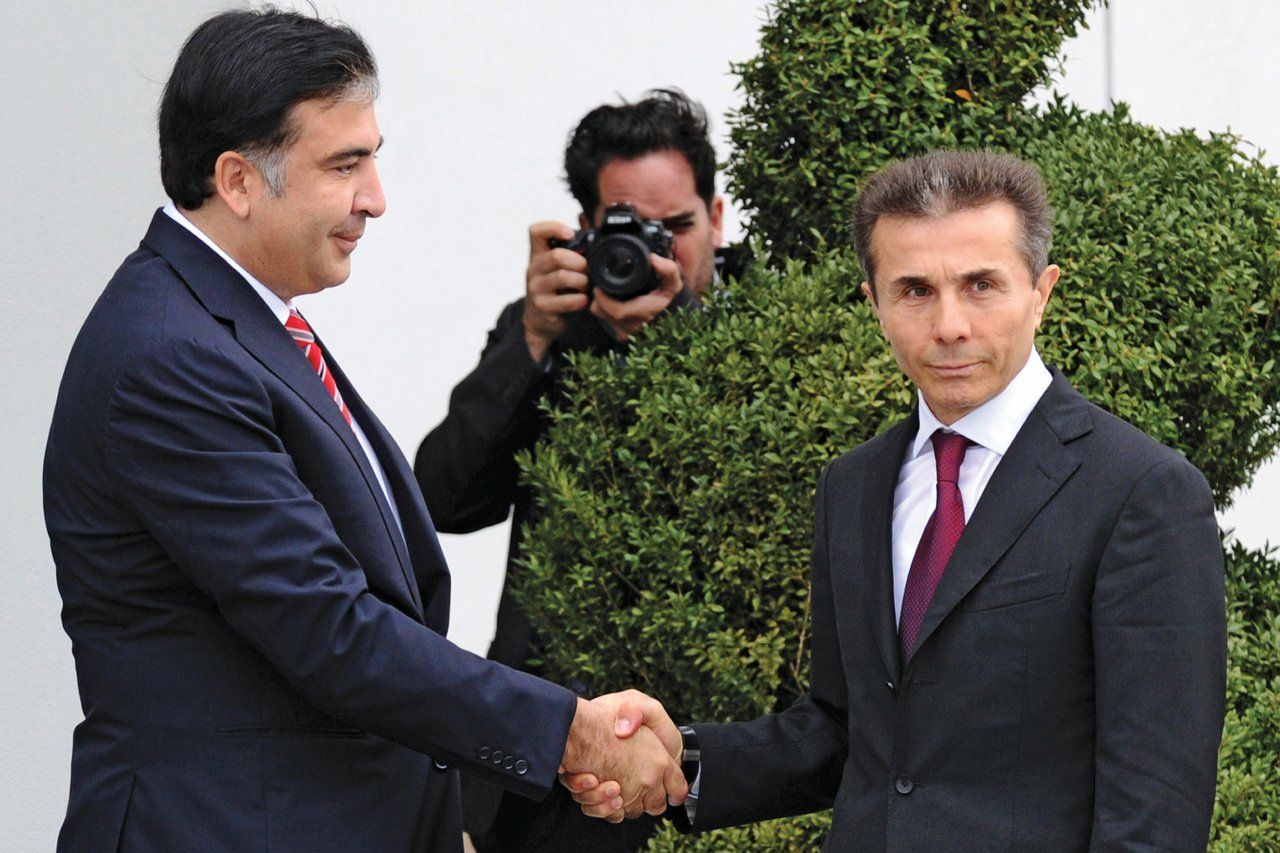
Once upon a time, the presidential palace perched on a hill overlooking the Georgian capital, Tbilisi, was bathed in light and its gilded halls hummed with activity as President Mikheil Saakashvili worked on his pro-Western reform plans.
But last year's election, which elevated Saakashvili's rival, the pro-Russian billionaire Bidzina Ivanishvili, to the post of prime minister, shut off that light. (The new government argued that exterior lighting of the palace was too expensive.) And Misha, as the burly, once ebullient Saakashvili is known, now toils in darkness, his famous smile having long since been replaced by gloom.
The shenanigans of his enemies, he says, "do not stop surprising me." The president, who was swept to power after the 2003 Rose Revolution, claiming an impressive 97 percent of the vote, is decidedly less popular these days. In recent weeks, protesters have gathered outside his residence, demanding he step down before his term is up in October. And his once remarkable approval rating now hovers, abysmally, around 29 percent, according to the National Democratic Institute.
Saakashvili insists that in the last few months, under the new government, economic growth has fallen from 6 percent to zero. It is clear: everything he has worked for, his opponents will turn to naught. "Georgia used to be an example of the best reforms," says Saakashvili. "And now we demonstrate how fast we can destroy them." Before becoming president, Saakashvili traveled and lived in the West, marrying a Dutch woman and studying law at Columbia University in New York. Upon his return to Georgia, he took a job in the administration of Eduard Shevardnadze; he later quit and led the peaceful revolution that brought down Shevardnadze's government and ushered in a period of Western-style reforms. Georgian troops fought alongside American soldiers in Iraq, and the nation applied for NATO and European Union membership.

Since taking office in November, the new Georgian government has battled openly with the president, initiating more than 100 criminal investigations of Saakashvili allies on suspicion of fraud and corruption. Former interior minister Vano Merabishvili complains that he is being harassed by authorities. "The police are questioning every single one of my friends and relatives." And Nika Gvaramia, the former minister of justice and education who stands accused of money laundering, says his case is "purely political" and vows to face the court "without fear."
The current minister of interior affairs, Irakli Gharibashvili, is adamant that the government can stand up its case. "We suspect the top elite stole millions of dollars. You will hear some evidence soon that will surprise you," he says.
At the same time, the government has released almost 200 people, whom they identified as political prisoners, and plans to free almost 6,000 more, who, according to the Interior Ministry, have been kept in "horrifying conditions."
"Saakashvili created a gulag in Georgia—almost every family had relatives in jail," Defense Minister Irakli Alasania says. "Authorities taped phone conversations of all important public figures, including foreign correspondents visiting the country."

The majority of the prisoners had been arrested for minor crimes, and the current amnesty has been praised by international human-rights groups. Not surprisingly, Saakashvili rejects the government's claims, arguing that the inmates were spies and professional rebels, "a threat to state security," and "connected to Russian elements."
Russia, the big neighbor to the north, casts a long shadow. And the rivalry between the incoming prime minister and the outgoing president can be seen as a battle for the soul of the republic: will Georgia continue to align itself with the West or move closer to Moscow? After 100 days in office, Ivanishvili on February 5 told reporters that he was mending Georgia's relations with Russia—a promise on which he campaigned—though he cautioned it might take some time. "It will not happen as fast as I used to say," he said.
Uncommon Knowledge
Newsweek is committed to challenging conventional wisdom and finding connections in the search for common ground.
Newsweek is committed to challenging conventional wisdom and finding connections in the search for common ground.
About the writer
To read how Newsweek uses AI as a newsroom tool, Click here.






